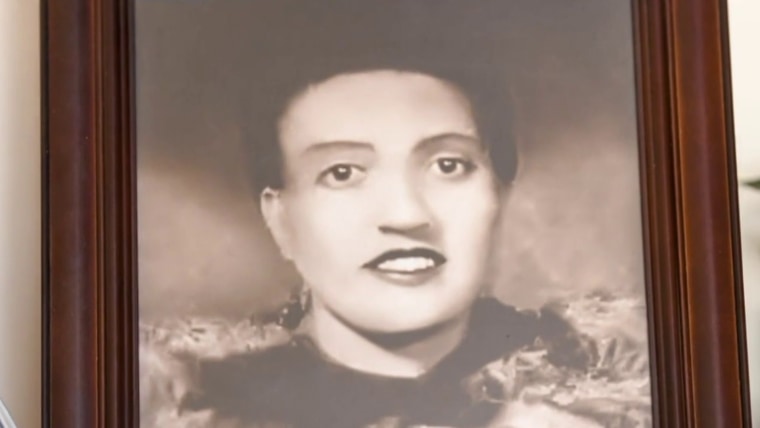The estate of Henrietta Lacks sued Thermo Fisher Scientific, a biotechnology company, on Oct. 4, alleging that the company continues to unfairly profit from the sale and use of HeLa cells, the name given to the tissue taken from Lacks, a Black woman, without her consent in 1951.
The lawsuit, filed on the 70th anniversary of Lacks’ death, represents a major challenge to the medical industry’s ability to endlessly profit from Lacks’ cells, which scientists have used in research since 1951. The suit against Thermo Fisher Scientific, which took in $32.2 billion in revenue in 2020, is the culmination of a decadeslong effort on behalf of the Lacks family to seek justice and shed light on racism within the medical field.
The lawsuit represents a major challenge to the medical industry’s ability to endlessly profit from Lacks’ cells, which scientists have used since 1951.
Born in 1920, Lacks was admitted to Johns Hopkins Hospital in January 1951, where she was diagnosed with cervical cancer. While undergoing treatment at Hopkins, her physician collected tissue samples for research. As documented in Rebecca Skloot’s bestselling book, "The Immortal Life of Henrietta Lacks," this was a standard practice at the hospital and was done without the consent of patients. When Lacks died on Oct. 4, 1951, the cells that doctors had collected from her went on to fuel medical research for decades.
The HeLa cells, as they’re called, represent the “first immortal human cell line” in the United States. Unlike other tissue samples, the cells taken from Lacks were able to survive in a laboratory setting and continued to grow and live. Their durability and ability to replicate allowed scientists to use them for studies and research purposes, and they’ve contributed to multiple medical breakthroughs. HeLa cells have been used by scientists to study AIDS and cancer, and they proved vital in the development of the polio vaccine.
While the cells have contributed greatly to a number of scientific developments, the shady means by which they were obtained brings to the surface the persistent problem of medical racism in the United States. For centuries, Black people and other marginalized groups have been subjected to acts of medical violence, including forced sterilizations and experimentation without their consent. What happened to Lacks must be understood as part of a larger pattern of Black people’s bodies being used as objects of experimentation and violence in the medical field.
These practices in the United States can be traced back to the early years of the nation’s founding. In "Medical Bondage: Race, Gender, and the Origins of American Gynecology," historian Deirdre Cooper Owens explained that the development of the medical field, including American gynecology, depended greatly on the bodies of enslaved Black women, whom white physicians deemed inferior. “Reproductive medicine,” Cooper Owens pointed out, “was essential to the maintenance and success of southern slavery.”
In the 1840s, J. Marion Sims, called the “father of modern gynecology,” performed experimental surgeries on enslaved Black women without anesthesia — including at least 30 surgeries on one woman named Anarcha — in his efforts to research a treatment for vesicovaginal fistula. Sims’ research — conducted on Black women without any consideration of their pain — reveals one of the ways that society erases the humanity of Black Americans.
It is only fitting that Ben Crump, one of the attorneys representing the Lacks family, would draw a parallel to the exploitative institution of slavery when discussing the new lawsuit. “Henrietta Lacks’ living cells,” Crump argued, have been used as “chattel to be bought and sold.”
As companies made a massive profit from HeLa cells, some of the members of the Lacks family struggled to pay for health insurance.
The statement is not hyperbolic, given the billions of dollars that have been made by companies buying and selling HeLa cells.
It was not until the 1970s that Lacks' family learned that her cells were being sold and distributed for medical research. As companies made a massive profit from HeLa cells, some of the members of the Lacks family struggled to pay for health insurance. And the research using HeLa cells did not slow down, as 17,000 U.S. patents were filed relating to Lacks’ cells. According to Skloot, one scientist has estimated that the HeLa cells grown over the decades would weigh “more than 50 million metric tons.” No one from the Lacks family had consented to this proliferation of her cells.
The Lacks case is but one of the many examples of doctors and medical researchers exploiting Black people and other marginalized groups for research and profit.
The combination of white supremacist ideas and greed in the Jim Crow South resulted in many Black people being unknowingly subjected to hysterectomies or tubal ligations. Civil rights activist Fannie Lou Hamer was victimized by this practice in 1961 when she was admitted to a county hospital in Mississippi to have a small uterine tumor removed.
Without her consent and without even informing her after the fact, the doctor performing the surgery removed her uterus. Hamer only learned of this act of violence after the wife of the owner of the plantation where she worked, a relative of the doctor, gossiped about it. Beyond the white eugenic beliefs that guided their actions, white medical professionals and staff stood to profit from forced sterilizations. By one estimate, removing Hamer’s tumor would have grossed the hospital $200; removing her uterus, $800. As the Lacks family would eventually do, Hamer went public and called out the brutal practice.
The year 2020 yielded excellent profits for much of the health care industry, but on Oct. 5, the day after the Lacks estate filed its lawsuit, the Annals of Internal Medicine published a report revealing the disproportionate number of Covid-19 deaths among people of color. The medical establishment continues to fail Black people, and not just on Covid-19. In the realm of reproductive health, maternal mortality and infant mortality rates for Black mothers and infants are much higher than their white counterparts.
The recent lawsuit from the Lacks family is a powerful stand against the medical establishment’s historic and ongoing dismissal and disregard of Black Americans. The Lacks family has drawn a line in the sand and now demands financial redress for decades of medical abuse and exploitation. As Lacks’ grandson Alfred Carter said, “No longer will we let outside entities control the narrative and dictate what’s going on with this family.”
Article From & Read More ( Henrietta Lacks' family's suit against biotech company for HeLa cells is long overdue - MSNBC )https://ift.tt/30oBdP7
Health
Bagikan Berita Ini
















0 Response to "Henrietta Lacks' family's suit against biotech company for HeLa cells is long overdue - MSNBC"
Post a Comment